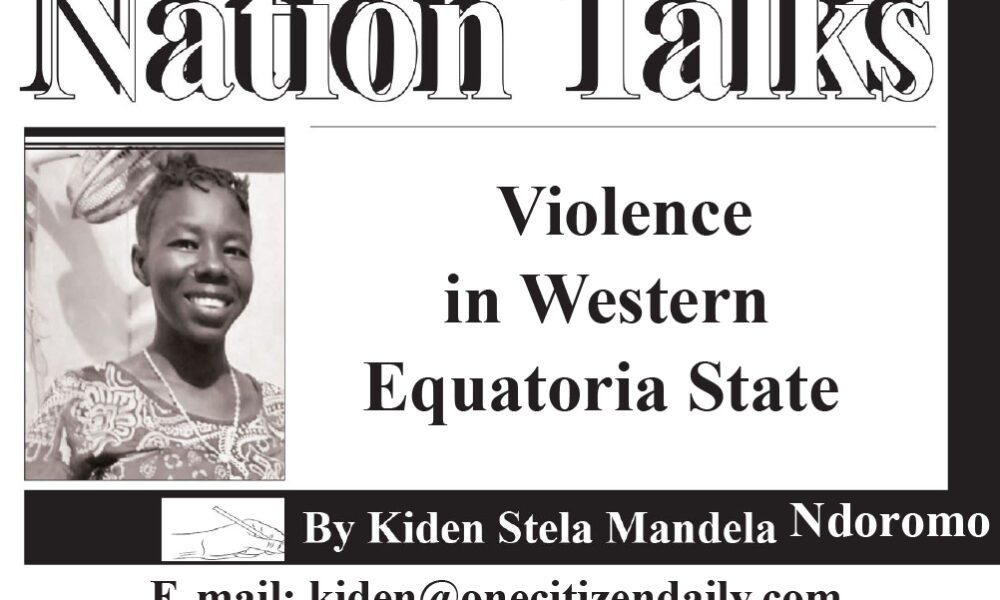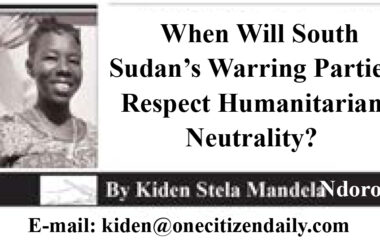It is a tragedy that the armed forces of this nation the SSPDF (South Sudan People’s Defence Forces) and various armed groups are not conducting themselves in a manner that inspires trust among the citizenry. The recent crisis in Yambio is deeply alarming. Instead of protecting civilians, the SSPDF and the armed groups are locked in a cycle of mutual blame, fueling tensions that have devastating effects on civilian life. This is evidenced by displacement, a rising death toll, and widespread property destruction, all of which actively hinder economic growth.
The uniformed forces including the army, police, wildlife, Civil Defense, and National Security forces are mandated to maintain security across the states and the entire country, aiming for zero issues of insecurity. However, the reality on the ground is starkly different. Issues like the lack of salaries contribute to this instability. This kind of persistent insecurity forces people to flee their homes in Western Equatoria State. Such triable matters have become a daily occurrence in some South Sudanese states, leaving civilians as the ultimate victims. Western Equatoria has, regrettably, become a hotspot of crimes.
The current Transitional Period was established through the Revitalized Peace Agreement (R-ARCSS). When the initial timeline lapsed, the government developed an extension roadmap to maintain the legitimacy of the national unity government. For this extension to be meaningful, the government must first prove its capability to implement domestic solutions to the long-standing conflicts that have devastated the nation.
The perception remains that the revitalized agreement was heavily influenced by foreign interests, making domestic implementation challenging. The only way to counter this is for our leaders to build a culture of trust and good working relationships among themselves. This positive maneuver will not only strengthen peacebuilding within the country but will also rebuild the citizens’ trust and, crucially, invite the necessary backing of the international community.
It is deeply difficult to comprehend the situation when civilians are threatened, forced to abandon their areas of livelihood, and potentially confined only to administrative headquarters. Yet, Chapter 2 of the Revitalized Peace Agreement explicitly tasks the army with protecting civilians. The recent displacements and deaths in Yambio, Western Equatoria, are a painful contradiction of this core mandate.
The Principals of the Agreement must urgently agree to continue the implementation of the peace deal and work to ensure sustainable peace across the entire country.
I appeal directly to the government to intervene immediately in the ongoing crisis in Western Equatoria. This suffering has gone on for too long. I urge the government to fulfill its primary duty and provide security for the people of Western Equatoria and the whole of South Sudan.
God protect South Sudan.
Be the Spectator!




